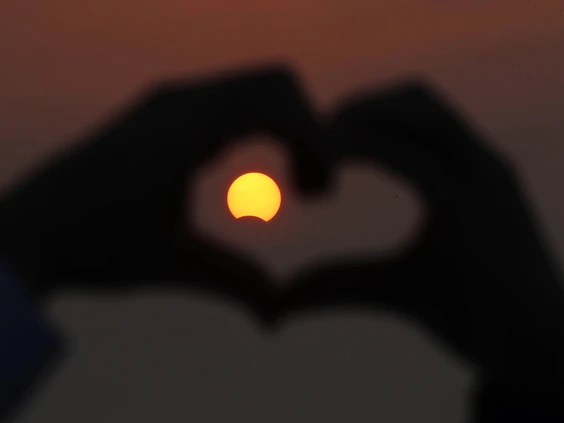The following article was published by Montreal Gazette, on April 6th, 2024.
A profound symbolism lies within this celestial wonder: Are we agents of light, or do we contribute to the shadows that engulf humanity?
As people eagerly await the solar eclipse on April 8, casting a shadow over many parts of Canada, I am reminded of the profound symbolism that lies within this astounding celestial wonder.
Beyond this spectacle of nature lies an opportunity for collective inner reflection — a chance to contemplate the shadows that obscure our individual and societal light.
The eclipse serves as a potent metaphor, with the moon momentarily obstructing the sun’s brilliance, mirroring the factors and attitudes that dim our inner radiance. Various faiths and traditions mark this event with contemplation and prayer urging us to introspect and re-evaluate our paths.
In my role as an imam with the Ahmadiyya Muslim Jama’at of Canada, I’ve witnessed firsthand how this celestial event prompts deep reflection and spiritual reconnection for many. It’s a day when communities come together to ponder over their actions, resolve to self-reform and renew their commitment to righteousness.
Central to this introspection for us should be the notion of justice — a cornerstone of any civilized society. True justice transcends mere legality; it demands equitable treatment for all, regardless of ethnicity, colour, race or faith. It compels us to confront our biases and uphold the rights of every individual, even if it means challenging our own preconceptions.
When injustice festers, it breeds resentment and erodes the collective spirit, casting shadows of discord and discontent. The eclipse serves as a poignant reminder of the darkness that ensues when fairness is forsaken.
Similarly, poverty stands as a perennial challenge, casting a long shadow over communities both locally and globally. Genuine empathy and compassion are essential to addressing this plight, as they inspire collective action and solidarity.
We can learn from our faith traditions that it is not merely a matter of charity but a moral imperative to uplift the marginalized and alleviate their suffering.
Failure to confront poverty perpetuates a cycle of despair, paving the way for lawlessness and crime to flourish. Like the fleeting darkness of the eclipse, it serves as a stark reminder of the consequences of neglecting our fellow human beings.
As we bear witness to the eclipse’s temporary darkness, let us reflect on our own luminosity. Are we agents of light, illuminating the path for others, or do we contribute to the shadows that engulf humanity? The answer lies in our commitment to justice, our capacity for empathy, and our willingness to extend a helping hand to those in need.
In embracing the solar eclipse as a time for collective reflection, my hope is that we reaffirm our shared humanity and our collective responsibility to illuminate the world with compassion and justice.
Let us emerge from the shadows, renewed in our resolve to be beacons of hope and agents of positive change. Let us become a source of light, not darkness for humanity.
Luqman Ahmed is an imam (missionary) with the Ahmadiyya Muslim Jama’at of Canada. He lives in Brossard.




